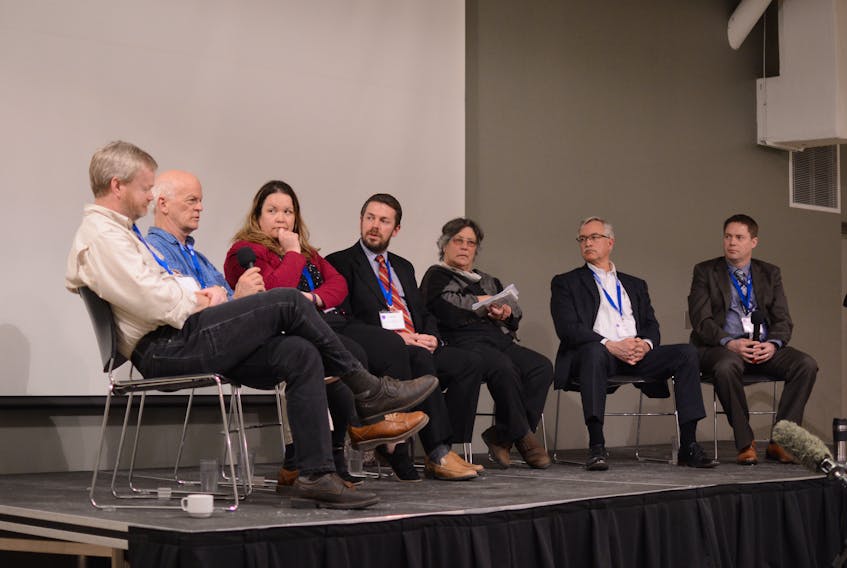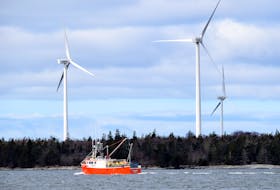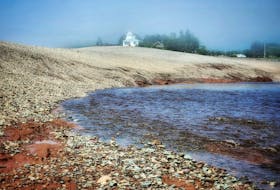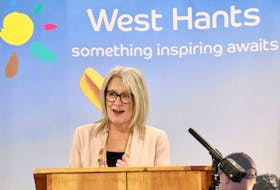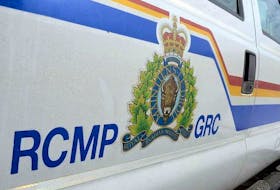AMHERST, N.S. – The Nova Scotia Department of Energy estimates that between $20 billion and $60 billion worth of onshore natural gas remains untapped in Nova Scotia.
Developing most of that resource would require hydraulic fracturing, or fracking, a practice that is banned in Nova Scotia
Whether or not to develop natural gas resources in Cumberland County was the topic of debate at the 4th Annual Energy Symposium hosted by the Cumberland Energy Authority at the Dr. Carson & Marion Murray Community Centre in Springhill on May 2.
The symposium finished with a question and answer session from the audience.
During the session, many environmental concerns about fracking were raised, but social concerns were raised as well.
One audience member said that, without consent from First Nation, roadblocks will be thrown up.
“If you think you can do something in Cumberland without indigenous consultation you are sorely mistaken,” he said.
John Hawkins, president of Heritage Gas, said he wholeheartedly agreed with him.
“I think we’ve seen examples of indigenous consultation done very well, and we can see examples of times when indigenous consultation wasn’t done well,” said Hawkins.
Hawkins said he was recently at an energy conference in Toronto where he met with indigenous leaders.
“I think more and more there’s going to be, not only consultation, but ownership within the projects,” said Hawkins, adding that there are substantial equity interests being negotiated between indigenous communities and other stakeholders in the natural gas sector.
Hawkins recommended a book written by Daniel Paul called ‘We Were Not the Savages.’
‘It’s extraordinarily eye-opening to see a First Nations perspective,” said Hawkins.
Another audience member, a Springhiller who graduated from university in 2008 with a degree in engineering, talked about the brain drain to Alberta.
‘Three quarters of my graduating class ended up in Alberta,” he said.
Following him was audience member Bill Archer of Amherst.
He said he started working in the oil and gas industry in 1997 and has worked on every continent except the Antarctic.
“I’ve been in locations where if you spill a tablespoon of hydraulic oil on the ground you record it and immediately clean it up,” said Archer. “And I’ve been in Iran where I saw a pipeline spill the equivalent of an Olympic-sized swimming pool of oil on the ground where their environmental cleanup is a flare gun.”
Archer said lax environmental standards can penalize oil-producing provinces like Alberta, forcing them to cut off equalization payments to the rest of Canada so they have more money for their own social programs.
Ken Summers of the Nova Scotia Fracking Resource and Action Coalition, NOFRAC, questioned Alberta’s ability to cut off equalization to other provinces.
“Alberta doesn’t have the ability to cut that off. It’s a tax system,” said Summers. “If Alberta wants to leave, fine, then they can cut us off from their taxes. Good luck on getting the oil out.”
Archer also questioned why eastern Canada is importing 700,000 barrels of oil a day from countries with poor environmental and human rights records, and asked why Nova Scotians are penalizing themselves by not developing their own resources to help pay for quality healthcare and other government programs, while supporting countries like Saudi Arabia.
Hawkins answered the question with a question of his own.
“The oil and gas will be consumed whether we produce it or not. If we don’t build pipelines, if we don’t produce natural gas, then who will?”
Hawkins said his father worked in Saudi Arabia for three years, his niece worked in Saudi Arabia, and, also, a friend raised two daughters while working in Saudi Arabia.
“What I’ve know from talking to them and what we’ve all heard in the news is enough for me to say that if we have a choice between meeting the demand ourselves or allowing other countries that are oppressive beyond imagination to meet that demand, I think there’s a real ethical question we have to address,” said Hawkins.

